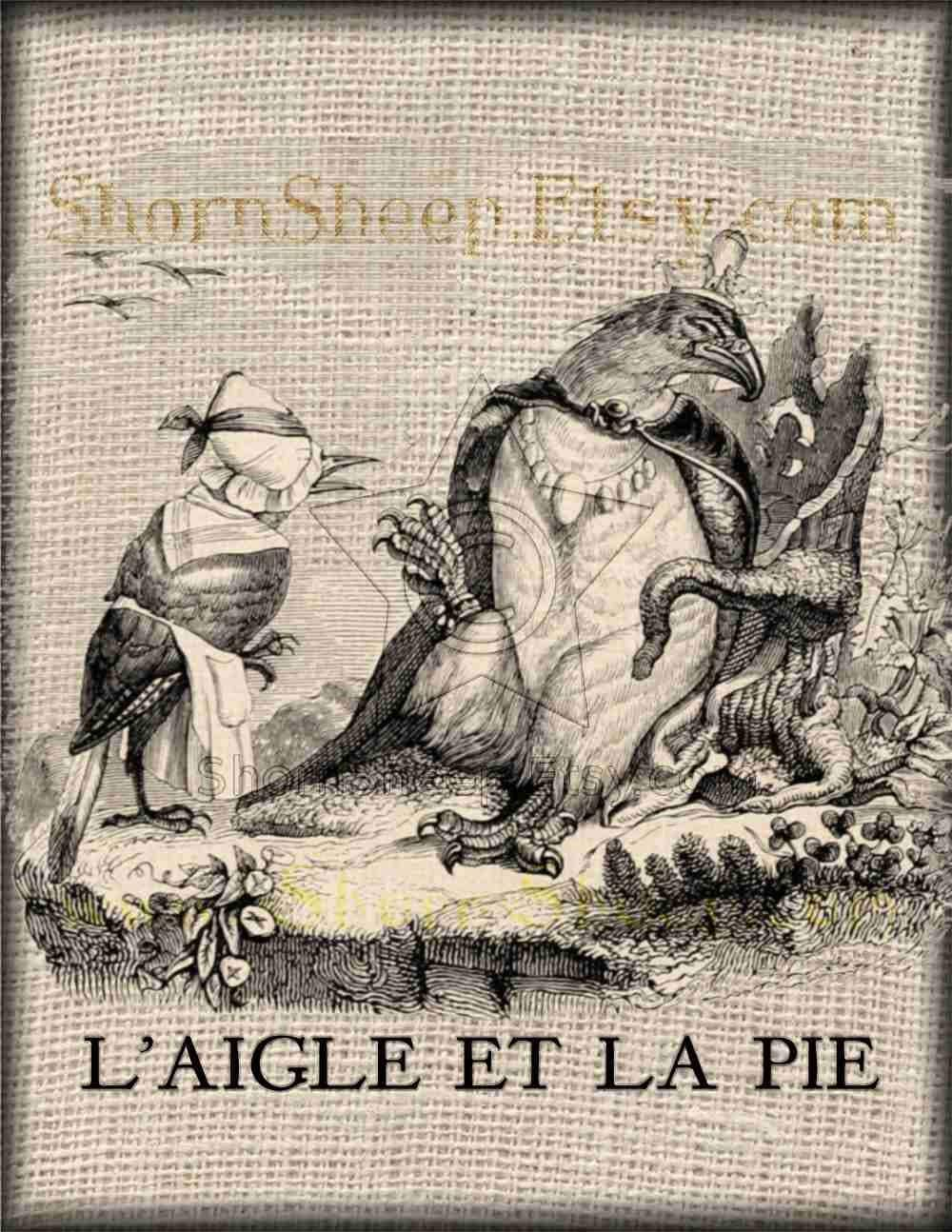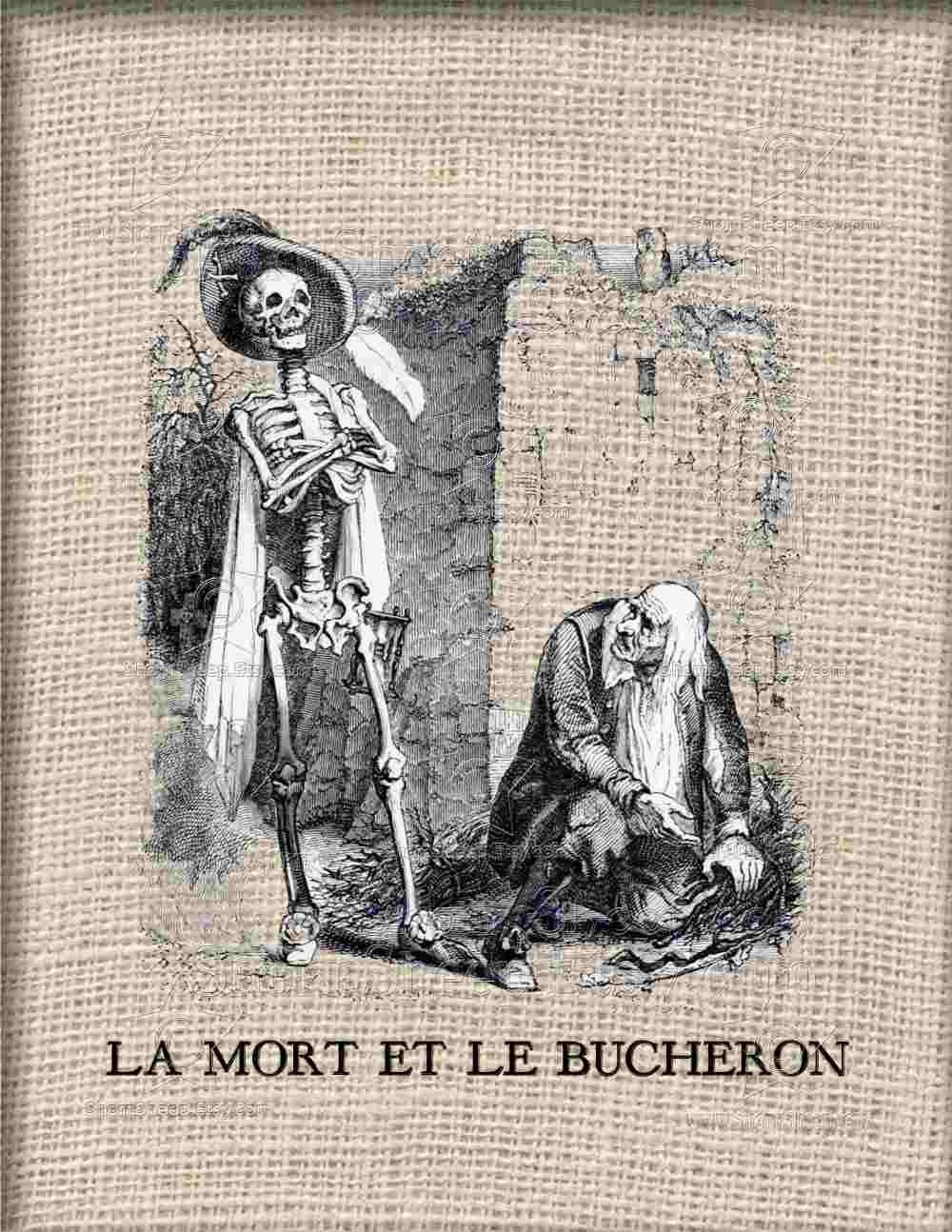La Fontaine based many of his fables off of Aesop's tales. La Fontaine also took it a step further and used his fables as characterizations of the French ruling class and religious leaders of his time. Many of his allusions are lost to us and not known.
J.J. Grandville was another Frenchmen who liked to poke stabs at those in charge and used many of his drawings as politically commentary of his time. His illustrations are entertaining and full of wit even to this day.
The Eagle and the Magpie
(Recueil 3, Livre 12, Fable 11)
The eagle, through the air a queen,
And one far different, I believe,
In temper, language, thought, and mien,
The magpie, once a prairie crossed.
The by path where they met was drear,
And Madge gave up herself for lost;
But having dined on ample cheer,
The eagle bade her, "Never fear;
You're welcome to my company;
For if the king of gods can be
Full often in need of recreation,
Who rules the world, right well may I,
Who serve him in that high relation:
Amuse me, then, before you fly."
Our cackler, pleased, at quickest rate
Of this and that began to prate.
Not he of whom old Flaccus writes,
The most impertinent of wights,
Or any babbler, for that matter,
Could more incontinently chatter.
At last she offered to make known
A better spy had never flown
All things, whatever she might see,
In travelling from tree to tree.
But, with her offer little pleased
Nay, gathering wrath at being teased,
For such a purpose, never rove,
Replied the impatient bird of Jove.
"Adieu, my cackling friend, adieu;
My court is not the place for you:
Heaven keep it free from such a bore!"
Madge flapped her wings, and said no more.
It's far less easy than it seems
An entrance to the great to gain.
The honour often has cost extremes
Of mortal pain.
The craft of spies, the tattling art,
And looks more gracious than the heart,
Are odious there;
But still, if one would meet success,
Of different parishes the dress
He, like the pie, must wear.
Jean de La Fontaine
Book 12, Fable 11
These 8x10 full size digital download illustrations are available in both png and jpg formats. What a marvelous way to add French shabby chic elements to your surroundings.
The Eagle and The Magpie on ArtFire
The Eagle and The MagPie on Etsy



